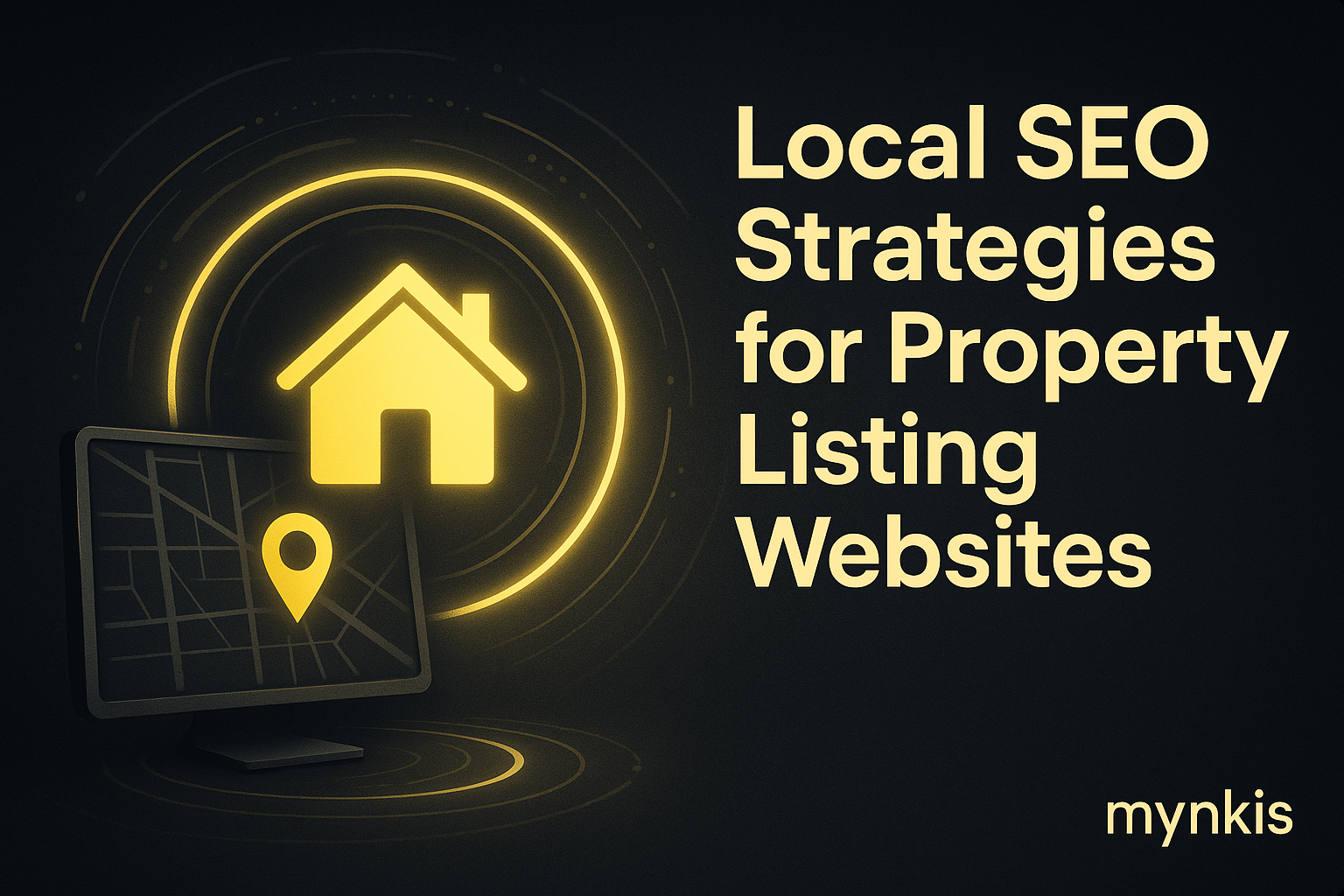Schedule a Demo
In my work with brokers, I've seen firsthand the transformative power of optimized website development for real estate businesses. Leveraging specific keywords tailored to local markets can significantly boost search rankings, driving traffic directly to property listings. Today, we delve deep into the vital world of SEO, focusing on the kinds of keywords that can propel your listings to the top of local search results.
It's no secret: location is everything in real estate. In digital terms, this translates into mastering local SEO to connect potential buyers with properties. When crafting your property listing website, embedding local-specific keywords becomes not just an advantage but a necessity. For example, incorporating phrases like 'Homes for sale in [City Name]' or 'Luxury apartments in [Neighborhood Name]' ensures your listings are precisely what local searchers are looking for.
The art of selecting keywords begins with understanding your audience. In my experience, the most effective keywords are those that directly reflect the searcher's intent. Terms like 'new listings,' 'foreclosures,' and 'open houses' can drive relevant traffic to your site. Additionally, consider geographic-specific keywords. They not only enhance SEO but cater to the immediacy and local nature of real estate transactions.
Long-tail keywords offer a nuanced approach to SEO, especially beneficial in the crowded real estate market. Phrases like 'affordable three-bedroom houses near [School Name]' or 'condos with swimming pool in [City Center]' not only reduce competition but also target a more specific audience, potentially leading to higher conversion rates. This strategy lets you stand out in a niche, drawing attention from buyers who know precisely what they want.
Integrating these identified keywords into your website's architecture isn't just about placement; it's about doing so seamlessly and strategically. I recommend focusing on title tags, meta descriptions, and URLs as primary areas. Ensuring each listing page has unique, keyword-rich descriptions can enhance relevance and search ranking. Moreover, blog content discussing local market trends or advice for buyers can subtly introduce these keywords, adding value to your site while boosting SEO.
While the pursuit of optimal SEO might urge one to stuff keywords wherever possible, I've learned that a delicate balance is key. Overusing keywords can not only harm your search rankings due to perceived spamminess but also degrade the user experience. Based on the best practices from Google, a keyword density of 1-2% per page typically strikes the right note—enough presence to bolster SEO without overwhelming the reader.
An often-overlooked aspect of SEO, user-generated content like reviews or buyer comments can significantly impact local SEO. When visitors interact with your listings by leaving reviews or feedback, not only does this add fresh, keyword-rich content, but it also builds trust and credibility. Encourage engagement by creating easy-to-use review forms and by responding to comments, thereby enhancing both SEO and community building.
Given that local property searches are increasingly performed on mobile devices, optimizing for mobile isn't just important; it's essential. Ensure that your website is responsive, loads quickly, and displays listings effectively on all screen sizes. Utilizing AMP (Accelerated Mobile Pages) can give you an edge in speeding up load times, which positively affects user engagement and, subsequently, SEO performance.
To further enhance your local SEO strategy, make use of local business listings and directories like Google My Business. Accurately listing your brokerage's details, and linking back to your property listing website, not only increases visibility among local audiences but also improves local search rankings through consistent NAP (Name, Address, Phone Number) signals. This approach establishes your presence in the digital local ecosystem.
Constant monitoring and adaptation are critical to mastering SEO. Use tools like Google Analytics to track keyword performance, user behavior, and conversion rates on your property listing website. Understanding which keywords are drawing traffic and leading to inquiries allows for refined strategy adjustments, ensuring your SEO efforts remain effective and tailored to evolving market trends.
The digital landscape is perpetually evolving, and so are the algorithms that dictate SEO performance. It's crucial to stay informed about Google's updates, like those that emphasize user experience or mobile-first indexing, as they directly impact local SEO strategies. Reading insights from established SEO authorities like Moz or Search Engine Journal can provide valuable updates and strategies to keep your website aligned with current best practices.
I've found that one effective but often underutilized SEO strategy is engaging with local communities and participating in real estate-related events. Mentioning local events or community initiatives on your website introduces more local keywords and creates content that local users find relevant and engaging. This engagement not only enhances your SEO but also positions you as an active participant in the local real estate scene, increasing trust and brand awareness.
As we look toward the future, the integration of AI in local SEO cannot be ignored. AI tools are already being used to analyze searcher intent more accurately and to predict trends that can inform keyword strategies. Staying ahead of these technological advancements can give your property listing website a competitive edge, ensuring it remains relevant and effective in a rapidly changing digital environment.
Finally, measuring the success of your SEO efforts is paramount. Establish clear goals and KPIs like increased traffic, better search rankings, and higher conversion rates from local search queries. Regularly reviewing these metrics allows for continual optimization of your SEO strategy, ensuring it remains aligned with your business objectives and the evolving needs of your local market.
